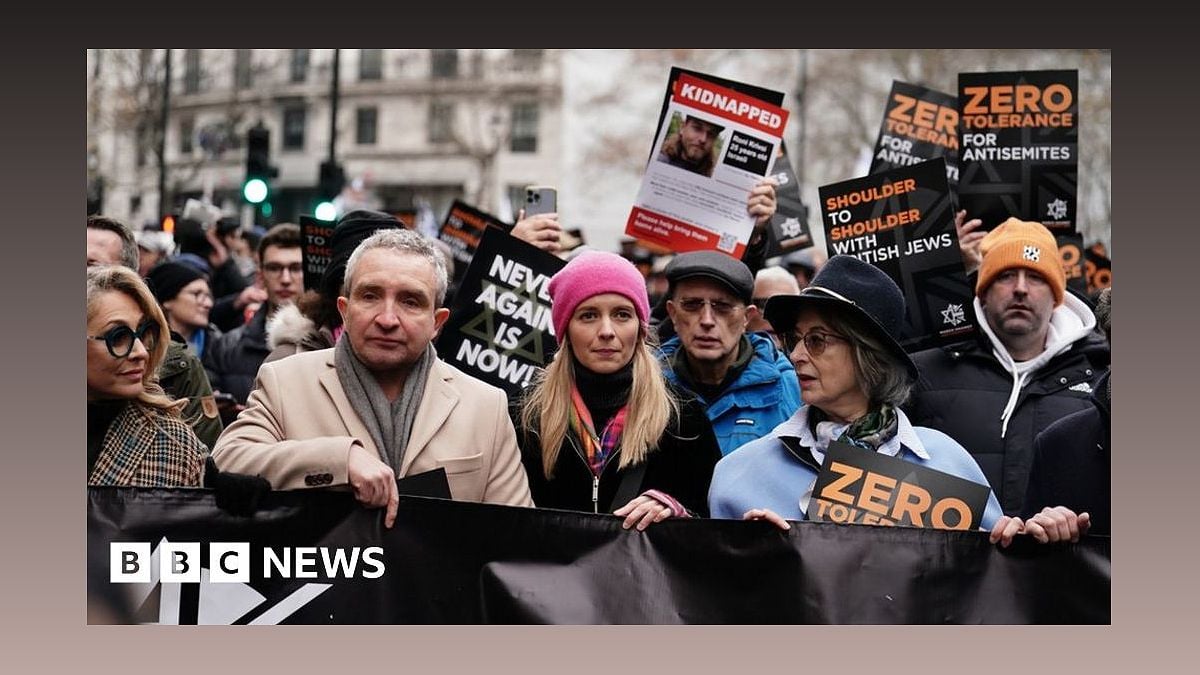March Against Antisemitism: Uniting Against Hate Crimes
Tens of thousands of people have taken to the streets of central London in a powerful demonstration against antisemitism. Organized as a response to the alarming rise in hate crimes, especially targeting the Jewish community, this historic march brings together people from all walks of life. Former Prime Minister Boris Johnson and numerous political figures joined the rally, showing their support for unity and condemning all forms of racism. Let’s delve into the details of this momentous event and the significance it holds in the fight against hate crimes.
The Urgent Need to Unite Against Antisemitism
Understanding the alarming rise in hate crimes
Antisemitism has seen a steep rise in recent times, with hate crimes targeting the Jewish community increasing at an alarming rate. It is crucial to address this issue and stand united against all forms of racism and discrimination.
According to recent statistics, there were 554 reports of antisemitic offenses in London between 1 October and 1 November, compared to 44 in the same period last year. These shocking numbers highlight the urgent need for action and solidarity.

By coming together in this historic march, we send a powerful message that antisemitism will not be tolerated. It is time to understand the gravity of the situation and work towards a society that embraces diversity and inclusivity.
The Uniting Power of the March
Bringing people from all walks of life together
The march against antisemitism in London has witnessed an overwhelming response, with tens of thousands of people from diverse backgrounds joining hands to combat hate crimes. This display of unity and solidarity is a testament to the strength of our society.
Former Prime Minister Boris Johnson, along with other political figures, stood shoulder to shoulder with the Jewish community, emphasizing the importance of eradicating antisemitism. The rally also saw the participation of notable personalities from the entertainment industry, further amplifying the message of unity.
By marching together, we show that we are a society that values compassion, understanding, and respect. This collective effort aims to create a safer and more inclusive environment for everyone, regardless of their background or beliefs.
The Historic Significance of the March
Reflecting on a pivotal moment in the fight against hate crimes
The march against antisemitism in London holds immense historic significance, drawing parallels to the Battle of Cable Street in 1936. During that time, the British Union of Fascists’ supporters were prevented from marching through a Jewish-populated area in East London.
Similar to the Battle of Cable Street, this march serves as a powerful symbol of resistance against hatred and bigotry. It stands as a reminder that we must learn from history and actively work towards building a society free from discrimination.
By participating in this historic event, we honor the legacy of those who fought against antisemitism in the past and pledge to continue their efforts in creating a better future for all.
The Call for Community Cohesion
Championing British values and unity
Chief Rabbi Sir Ephraim Mirvis, addressing the crowd at Parliament Square, emphasized the need for community cohesion in the face of antisemitism. He called for a strengthening of bonds and highlighted the importance of championing the finest of British values.
As individuals, we have the power to make a difference by standing up against antisemitism and all forms of racism. This march serves as a reminder that we must remain vigilant and actively promote inclusivity, tolerance, and respect within our communities.
Together, we can create a society where everyone feels safe, valued, and accepted. Let us be proud advocates of British values and work towards a future free from hate and discrimination.
